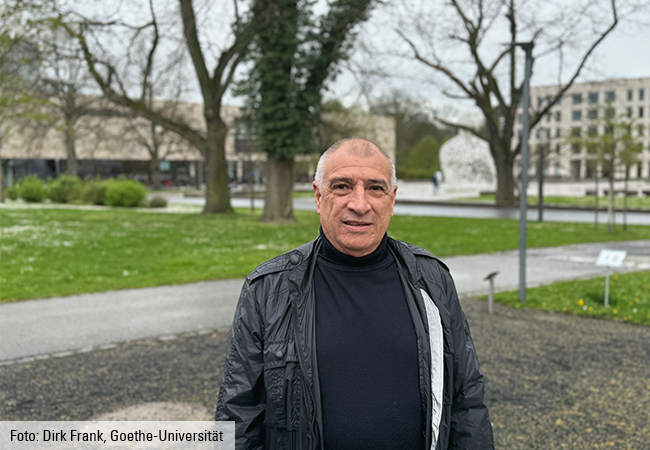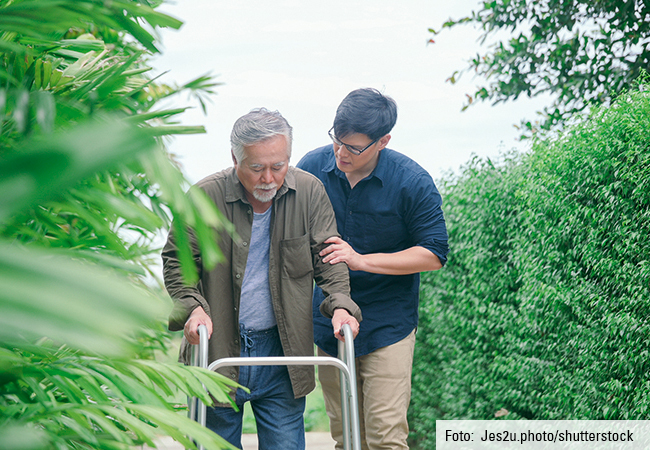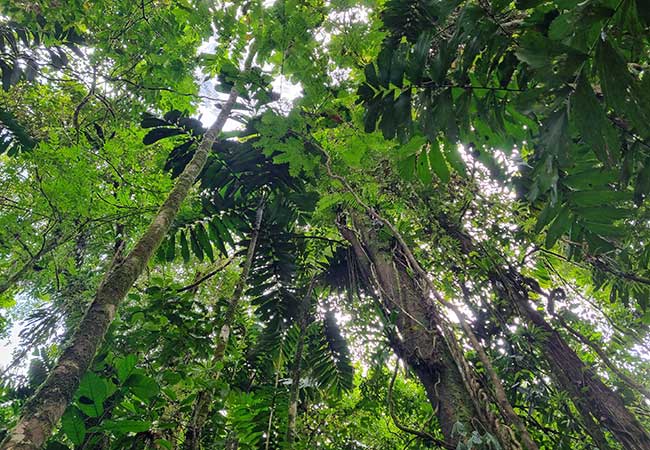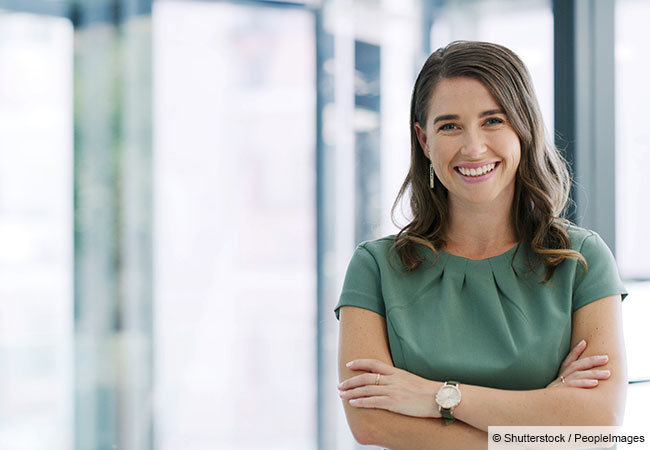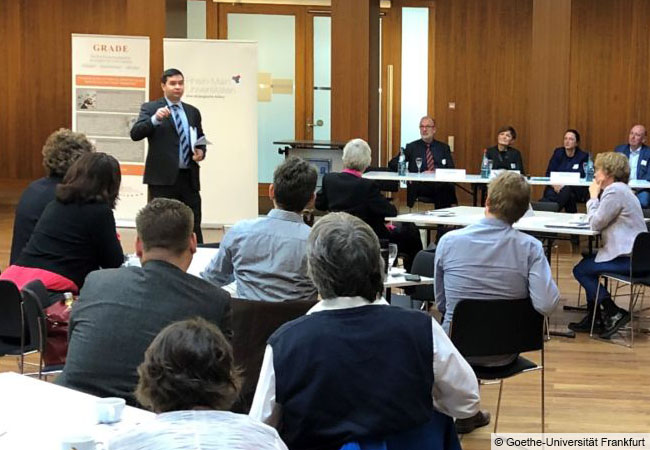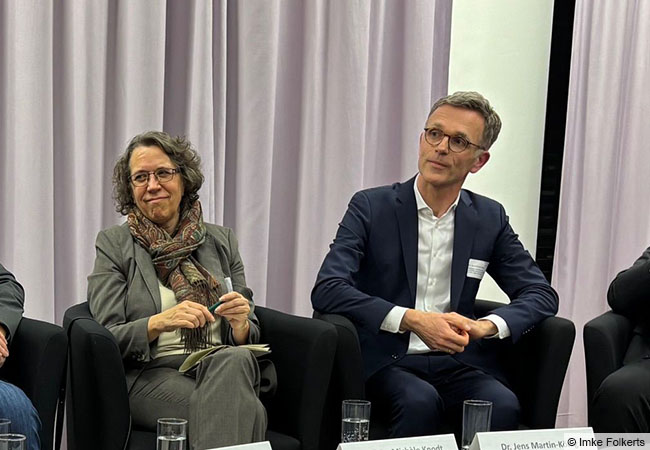Educational scientist Yandé Thoen-McGeehan has just published her first novel “Weiße Wolken” (“White Clouds”), in which three protagonists are confronted in very different ways with the contradictions of contemporary society.
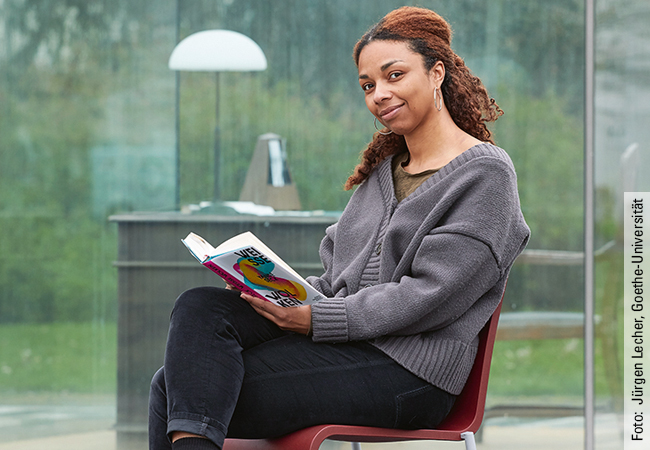
Just keep writing until you are finished, then worry about what to do with your manuscript. How Yandé Thoen-McGeehan proceeded with her first novel does not necessarily sound like the usual approach you would find in Frankfurt, a stronghold of Germany’s literary scene.
The educational scientist and qualified child psychotherapist emphasizes that she had no personal connections to help her in taking her first tentative steps as a writer. But that did not deter her from immersing herself in the world of fiction, having already published academic papers at the time. “During the pandemic, I just sat down and put something to paper. I then simply googled where I could send my manuscript,” she says with a laugh. A literary agent based in Frankfurt expressed interest in her work and found a renowned publisher in Cologne. So far, her debut novel has received very positive reviews.
Even if Thoen-McGeehan can be considered as more of a newcomer to fiction, her work nonetheless exhibits a certain poetology: “As a therapist, you listen a lot, you note down the stories people tell you and then grapple with them, since many also touch on something in your own life. Dreams also serve as a rich source of inspiration, and we have known since Freud that dreams themselves function like literature in that they condense or displace things we experience in reality,” she says. One of her research fields at Goethe University’s Institute of Special Education is psychoanalysis, which she questions and critically examines in relation to motherhood and migration.
Life in Frankfurt’s Nordend
Thoen-McGeehan devours fiction, especially Anglo-Saxon novels. German authors such as Helga Schubert and Nele Pollatschek have also had a strong influence on her, she says, adding that they encouraged her to make the characters in her novels contradictory. There is Dieo, the mother of three who tries to juggle the demands of middle-class life alongside successful economist Simon. Her younger sister Zazie is still a student and works as an educator in a youth center. While Dieo is even-tempered, Zazie is hot-headed and ready to engage in any and all debate about racism and exclusion. The father of these two very different sisters comes from Senegal, their mother is German. The three protagonists move in what can, by all means, be considered privileged circles, who reside in period apartments, frequent stylish cafés and vintage shops, prefer cargo bikes as a means of transport and confidently engage in intercultural exchange in several languages. Yet dark abysses also await in their lives, which especially the more academically oriented Zazie sometimes addresses in a loud and self-opinionated manner. What stereotypes are typically applied to black Germans, even if they are positive ones? How do discourses about racism, discrimination against women, denied access to education and insufficient intergenerational justice overlap? Thoen-McGeehan succeeds in addressing these different discourses and integrating them into the plot, without turning the novel into an angry diatribe, but instead making it an overall very amusing and tongue-in-cheek description of a milieu in which many young and young-at-heart academics are likely to recognize themselves.
Talking with and about others
One of the concepts Thoen-McGeehan has dealt with in her research is that of “othering”, including, for example, when white psychoanalysts talk to and reflect on migrants. Thoen-McGeehan looks at how and whether, in the process, they project their own, socially scorned and unpleasant feelings of accountability. Given her own research, has she not also considered writing a non-fiction book on everyday racism in contemporary German society? “I have read many books on the subject, including by American journalist Ta-Nehisi Coates. By condemning racism, his books develop a certain pull. But the enlightening moment can also leave you feeling resigned and in despair. I believe a novel gives you the chance to present the ambivalence of this topic in a more subtle way.” You can sense that she feels an inner connection to her protagonists, even if they sometimes act inconsistently in their everyday lives. This is where Thoen-McGeehan takes a more critical approach to science: “As a researcher, you often literally arm yourself with your knowledge and specialist terminology. You can almost torment people with it. Seeking an emotional way to reach out to others would often be better when it comes to topics such as the ‘refugee crisis’. If all you see about refugees crammed on boats in the Mediterranean is a report on TV, it can leave you untouched. But if I develop a connection to those people, if I identify with their fates in some way, something changes.”
Real life and fiction
Looking at Thoen-McGeehan’s life, you almost feel obliged to read her debut novel as an autobiography. Like the two sisters in her novel, she only met her father’s large family in Senegal later on in life and found it very rewarding. Did she see this proximity between fact and fiction as problematic when writing her novel? She did, after all, opt for a different nom de plume: Yandé Seck graces the cover. “It’s my Senegalese relatives’ family name,” she explains, adding that, “I think the relationship between one’s own life and a fictional story documented in writing is pretty complex. The written form and the excerpt-like style create an image. By contrast, reality is dynamic and for that reason alone cannot be identical with this image. Then there’s of course the reader, who does something entirely of their own with the text…” Thoen-McGeehan finds it very amusing when family members and friends think they recognize themselves in the novel. “After the book was launched, my husband said: ‘Now everyone thinks I’m Simon. I guess that something I have to live with.’ We thought about what freedoms might develop from it.”
Is she already thinking about her next novel? “I have been advised to give ‘Weiße Wolken’ some space first and to take my time. At the beginning, I had the feeling that I had said and told all there was. But it could, in fact, be a good starting point for picking up the story again. I would be very interested in narrating the lives of the next generation in the novel, Generation Z.”



